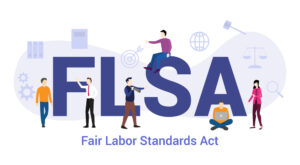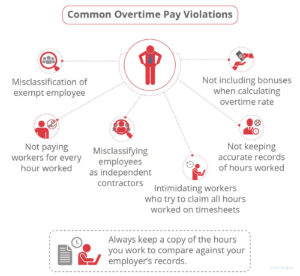

For small and midsize business owners in the hospitality industry, it is crucial to understand and comply with employment laws to avoid costly penalties. A recent case involving a restaurant chain in Greenville, South Carolina serves as a reminder of the consequences of violating wage and hour regulations.
The U.S. Department of Labor’s investigation found that Tipsy Holding II LLC, operating as Tipsy Taco, denied overtime pay to its employees and failed to maintain accurate records.
Join us in this post as we highlight the case and emphasize the importance of upholding workers’ rights and adhering to employment laws.
The Violations
Investigators from the Wage and Hour Division discovered that Tipsy Holding II LLC failed to pay the half-time premium to cooks, servers, and bar employees for hours worked over 40 in a workweek.
This violation directly contravenes the Fair Labor Standards Act (FLSA), which mandates overtime compensation. Additionally, the employer was found to have inadequate recordkeeping practices.
What is the FLSA?
The Fair Labor Standards Act (FLSA) is a law that sets minimum wage, overtime pay, recordkeeping, and youth employment standards. This federal law applies to nearly all businesses in the U.S.

What are the FLSA Overtime Rules?
Non-exempt employees must be paid at least one and a half times the regular wage rate for all hours worked over 40 in one workweek, which is defined as seven consecutive 24-hour periods. The Department of Labor (DOL) defines a workweek as “a period of 168 hours during 7 consecutive 24-hour periods. It may begin on any day of the week and at any hour of the day established by the employer.”
It’s very important to note that the DOL refines this explanation, “For purposes of minimum wage and overtime payment, each workweek stands alone; there can be no averaging of 2 or more workweeks.” You’re required to pay overtime during the payroll period in which the employee earned it. So, if you pay employees weekly, then their overtime pay must be paid weekly.
Back Wages and Liquidated Damages Recovered
As a result of the investigation, the Department of Labor recovered $567,079 in back wages and liquidated damages for 215 workers. These funds aim to compensate employees for the unpaid overtime they were entitled to under the law.
FLSA Overtime Penalties
Your business can face thousands of dollars in penalties, plus you’ll owe back wages to affected employees. If your violations are judged to be “willful,” you can face criminal prosecution. Employers who willfully or repeatedly violate the minimum wage or overtime pay requirements are subject to a civil money penalty of up to $1,000 for each such violation.
Violators of the child labor provisions are subject to a civil money penalty of up to $10,000 for each young worker who was employed in violation.
Willful violations of the FLSA may result in criminal prosecution and the violator fined up to $10,000. A second conviction may result in imprisonment.
Be aware that states may have their own penalties as well. In South Carolina employers who violate the Payment of Wages Act are subject to a civil penalty of $100 for each violation. Employees can recover up to three times the full amount of unpaid wages, costs, and attorney’s fees.

Importance of Respecting Workers’ Rights
Wage and Hour District Director Jamie Benefiel in Columbia, South Carolina, highlighted the significance of respecting workers’ rights, particularly in the food service industry.
“As food service industry employers struggle to find people to fill the jobs needed to remain competitive, they should remember that keeping and finding workers is harder for employers who don’t respect workers’ rights and shortchange them of their full wages,” “Overtime violations are common in the restaurant industry, but they shouldn’t be. There are more than enough resources available to employers to help them understand their obligations to employees under the law.”
Resources for Employers
The Wage and Hour Division offers various resources to help employers understand and comply with employment laws. These resources can provide valuable guidance on workers’ rights, minimum wage requirements, overtime compensation, and recordkeeping practices. It is essential for small and midsize business owners in the food service industry to utilize these resources to ensure compliance with the law.
The case of Tipsy Holding II LLC serves as a reminder of the potential penalties for breaking employment laws, particularly in the hospitality industry.
Do you have questions or need help reviewing your wage and hour policies and practices?
Contact an experienced Payroll Medics today to help you stay compliant and avoid costly penalties.